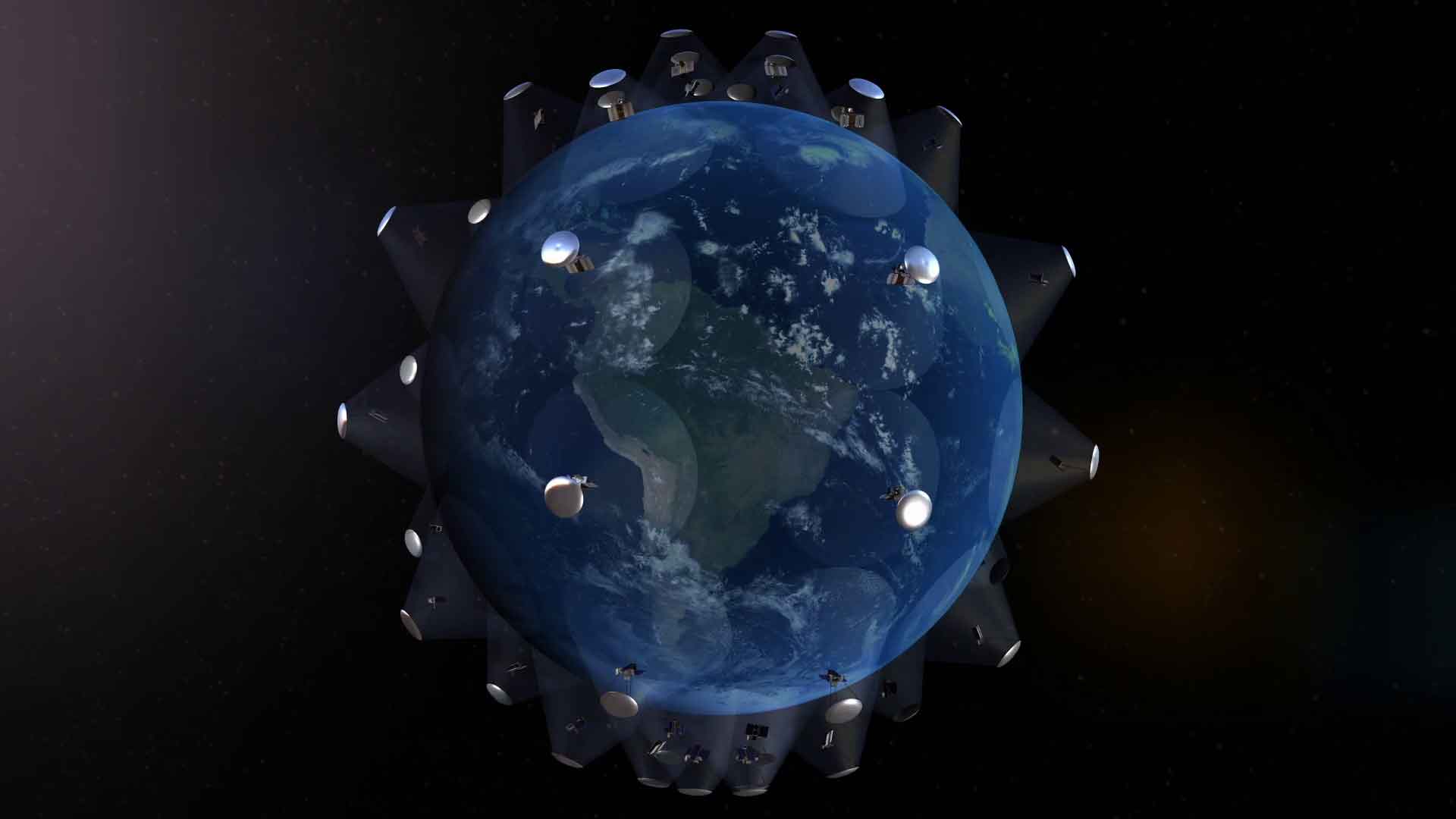- Sectors
- Aerospace & Defense
- Big science
- Biotechnology
- Fintech
- Insights

Paris December 16th, 2021.- ARQUIMEA, a technology company that operates globally in key sectors, and NSLComm, an Israeli space-tech enterprise, enter into a partnership to develop BeetleSat, the next generation LEO Ka-band satellite constellation for cellular backhaul applications. The companies presented the project during the World Satellite Business Week that took part in Paris between 13th and 16th December.
BeetleSat’s non-terrestrial telecom infrastructure will provide satellite operators and global service suppliers with a high-performance LEO satellite telecom layer supplementing their own operations with a ubiquitous, secure, low-latency, cost-effective, multi-gigabyte telecom platform. The first demo mission will be launched in April 2022 to prove the satellite-to-ground communications, while a second demo mission is planned by mid-2023 to validate the Ka-band intersatellite link.
BeetleSat relies on ARQUIMEA’s 15 years of experience in the development, engineering and production of space-qualified components and systems for hi-rel and critical applications, with over 30,000 parts supplied in the frame of ESA and NASA missions and for key satellite operators.
NSLComm’s provides wide experience in satellite design and operation and its cutting-edge large-aperture expandable antennas enabling more than 10 times the bandwidth of traditional antennas with much lower CAPEX, thus enabling a cost-effective service compared to other satcom systems.
“This partnership will bring interesting opportunities to satcom operators and will open a new path for affordable and reliable communications for the users everywhere” said Diego Fernández, ARQUIMEA President.
Raz Itzhaki, NSLComm CEO comment “the disruptive technology of the antenna is a step forward when we compare it with other satellites constellations with rigid antennas. This advance reduces significantly the cost and ensures a high-performance of the system.”
For more info about BeetleSat constellation please visit www.beetlesat.com.